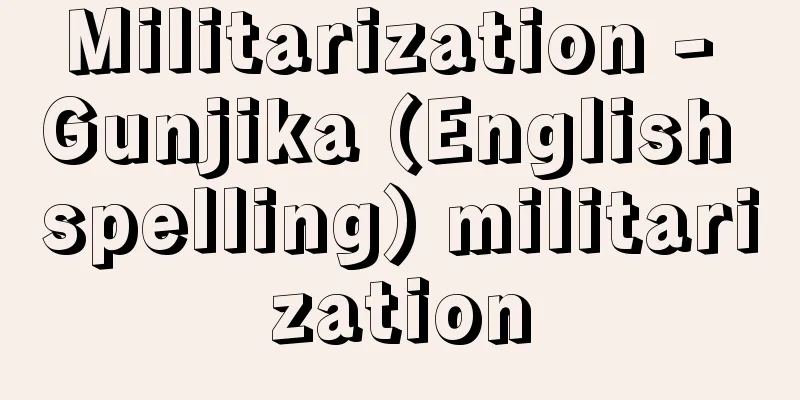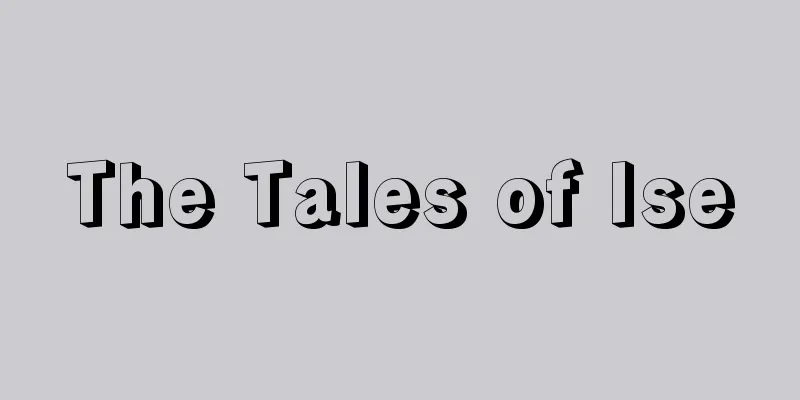Militarization - Gunjika (English spelling) militarization

|
This is not only an increase in military power and military expenditure, but also a tendency or process of increasing reliance on strong power and coercive force as a method or style of value allocation in the domestic and international communities. After World War II, militarization progressed without necessarily being accompanied by a "revival of militarism." First, the emergence of nuclear weapons systems created a constant state of tension that could bring about total destruction in a short period of time, and the United States and the Soviet Union long prioritized military strategic judgment. This external militarization is likely to lead to the concentration of policy-making power, an increase in military secrecy, and a disregard for the human rights and freedoms of the people, and it has been pointed out that there is a danger that democracy will be hollowed out and transformed into a garrison state or national security state. The second is the enforcement of authoritarian development policies in developing countries. A system in which the military, which has seized power through a coup or other means, links up with technocrats and promotes industrialization and economic policies is called a developmental dictatorship. This is a typical example of internal militarization, which has suppressed democratization movements and human rights. Militarism refers to an ideology or system in which soldiers and the military occupy a superior position in national society, affirm war externally, and subordinate politics, economy, education, culture, etc. to the military internally. (Yoshikazu Sakamoto, Professor Emeritus, University of Tokyo / Kenichi Nakamura, Professor, Hokkaido University / 2008) Source : "Chiezo" published by Asahi Shimbun Publications Co., Ltd. About Chiezo |
|
軍事力、軍事費の増大だけでなく、国内や国際社会での価値配分の方法や様式として、強権や強制力への依存が高まる傾向や過程。第二次世界大戦後、必ずしも「軍国主義復活」を伴わない軍事化が進行した。第1に核兵器体系の登場により、短期間に全面的破壊をもたらす緊張状態が恒常化し、米ソは長く軍事戦略上の判断を優先させた。この対外的軍事化は政策決定権力の集中、軍事機密の増大、民衆の人権・自由の軽視に結び付きやすく、民主主義が空洞化して兵営国家(garrison state)や国防国家(national security state)に変質する危険が指摘された。第2は発展途上国における権威主義的な開発政策の強行である。クーデターなどによって権力を握った軍部がテクノクラートと結び付き、工業化や経済政策を推進する体制を開発独裁と呼ぶ。これに典型的に示される対内的軍事化によって、民主化運動や人権が抑圧されてきた。なお、軍国主義(militarism)とは軍人や軍隊が国家社会で優越的地位を占め、対外的には戦争を肯定し、対内的には政治、経済、教育、文化などを軍事に従属させる思想や体制をいう。
(坂本義和 東京大学名誉教授 / 中村研一 北海道大学教授 / 2008年) 出典 (株)朝日新聞出版発行「知恵蔵」知恵蔵について 情報 |
<<: Military base - Gunjikichi (English spelling) military base
>>: Military aid - Gunjienjo (English spelling)
Recommend
persistent slip band
…In particular, on the surface, slip bands are fo...
Kyobo - Keibo
A Chinese thinker and scholar of I Ching in the W...
Riemenbügel (English spelling)
...After starting to walk, when standing on the a...
Katsuura [city] - Katsuura
A city facing the Pacific Ocean in southern Chiba ...
Eating a meal - Kasshiki
〘Noun〙① ("Katsu" means to chant) In Zen ...
Correction
… The administrative divisions of the Viceroyalty...
Superfamily Rhinolophus - Horseshoe bat
...The Microchiroptera suborder has a long tail, ...
Gymnogongrus flabelliformis Harv.
A red alga of the Celastraceae family (illustratio...
Pungitius sinensis (English spelling) Pungitiussinensis
…[Isao Hanyu]. … *Some of the terms mentioned in ...
Dawes, W.
…This is the site of the first battle of the Amer...
Crime of aiding a foreign enemy
The crime of participating in or cooperating with ...
chapter
…the Roman Catholic Church is a body of the Churc...
Yosano Tekkan - Good Tekkan
Poet and poet. Born in Kyoto on February 26, 1873...
Károlyi Mihály (English spelling)
Hungarian politician. Grew up under the influence...
Northern Russian Dialect - Kitadairoshyahogen
... In addition to the nouns, adjectives, numeral...









